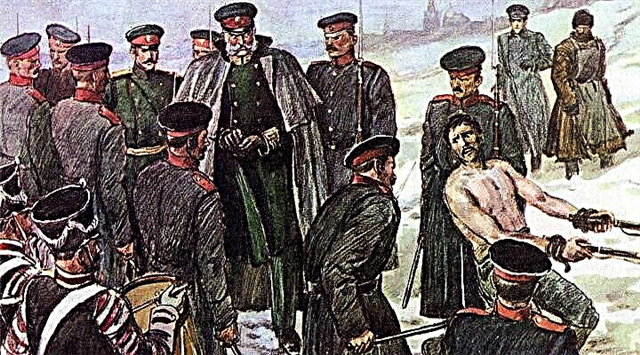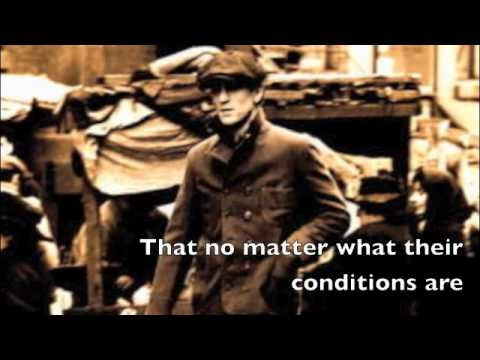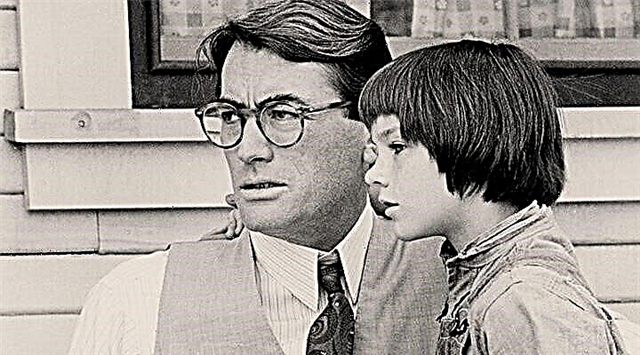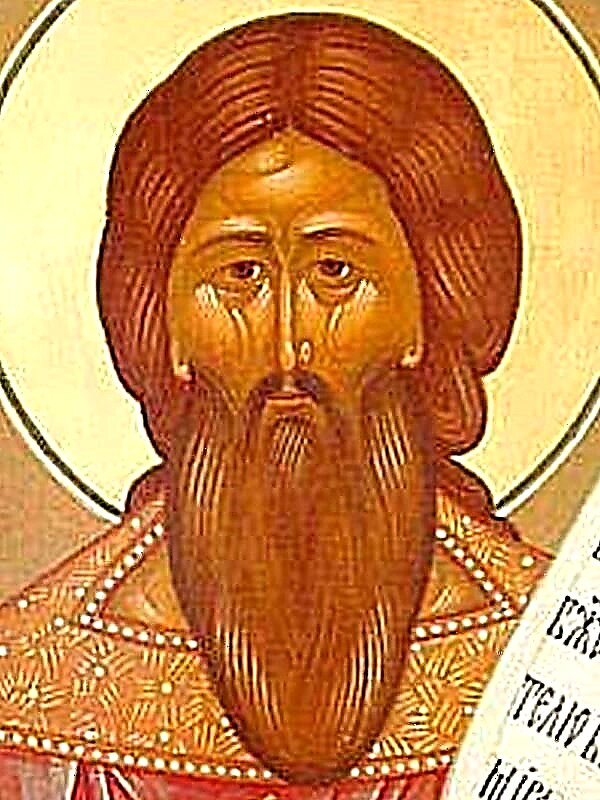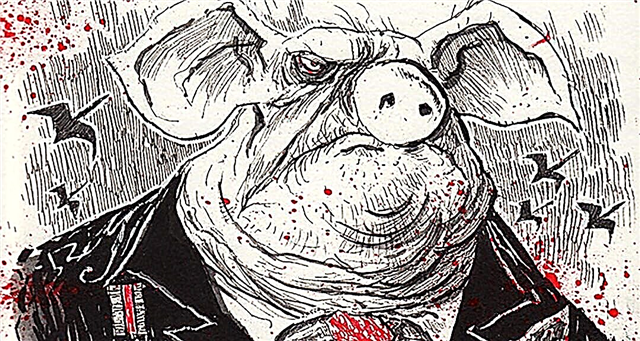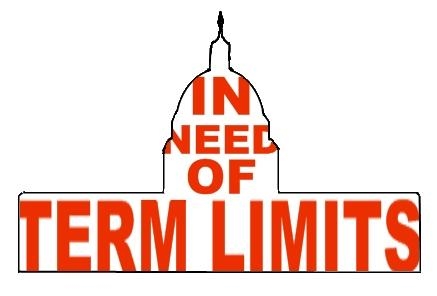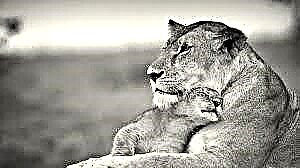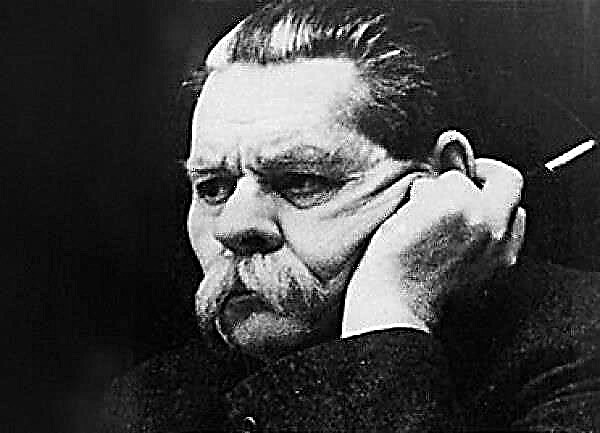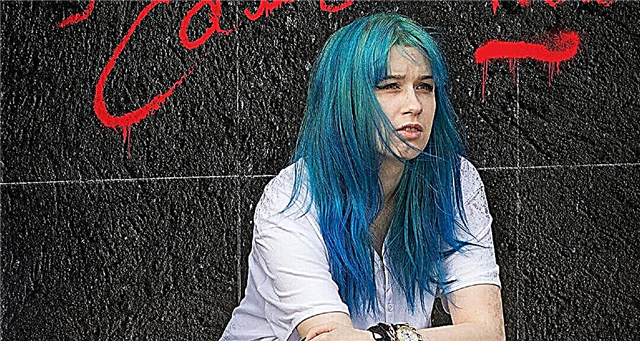The action of the novel "Autumn Light" takes place in an American province, away from big cities. The quiet life of small towns, far removed at first glance from the senseless hustle and bustle of the megalopolises, is not alien to the “damned” problems of technocratic civilization, the dark, heinous sides of big business and big politics. The heroes of the novel are seventy-three-year-old farmer James Page and his sister Sally, who live in Vermont in 1976 after the country has already celebrated the bicentennial of national independence. This year it becomes especially clear to old James Page that America is now completely different from what it was before, as it always seemed to him - a country of harsh and honest people who know how to work and stand up for themselves, who have a healthy beginning coming from the earth , from nature. James himself was a veteran of World War II, served in the airborne engineering forces in Oceania, and now every year he puts on his cap and on Veterans Day participates in a parade in his village. He feels himself a descendant of the founders of the nation - the Vermont Guys from Green Mountain. It was they who defended the Vermont lands from New York speculators and recaptured the Taykonderoga fortress from the British Red Tunic — real people who knew how to fight and believed in their fate.
James is a man of the old and strict rules of Puritan morality, which forms the basis of the American way of life and gradually, as he believes, gives way to immorality, the power of money, the thirst for a beautiful and easy life. The modern generation in his eyes - "fat pigs - chicken brains, give it pleasure, they would only please themselves." People seem to have gone crazy "because of lousy dollars" - they are killing each other, selling themselves, losing their minds, and meanwhile, forestry is getting worse, farmers are living worse, people are weaned to work with their hands, as they have been for centuries, and forget what it is honest and fair work. That's what America came to after two hundred years, says James Page, and in his imagination, the founding fathers rise from their graves with sunken eyes, in decaying blue uniforms, with rusted muskets to revive America and make a “new revolution”.
A symbol of a new time that the old farmer does not accept becomes a television set for him, endlessly showing murderers, rapists, police officers, half-naked women and all sorts of long-haired “psychos”. His sister Sally brought this infernal car with her when she moved to live in her brother's house. Sally is as capricious and stubborn as her brother, but she has a different opinion, for many years she lived in the city with her husband Horace until he died. She has no children. It cannot be said that she approves of current morals, but believes in a change for the better and is ready to talk on all sorts of topics, “like an avid liberal,” which causes fierce discontent of her brother, whose own convictions endured by life coexist with common prejudices. The relaxed behavior of the young does not shock her, for she believes that they want to draw attention to social injustice with their antics. She does not consider television a diabolical invention and treason, like her brother - this is her only connection with the world, with urban life, to which she is accustomed.
Sally spends the whole evening, burying herself on the screen, until at last James can not stand and shoot the TV with a shotgun - he shoots into that world, that life that has deceived him and betrayed the ideals of the past. And he drives the rebellious old woman to the second floor, and she locks herself in the bedroom in protest, refusing to do anything around the house. A domestic quarrel with a “political” connotation — both talking about freedom and referring to America’s constitution — is being dragged on. Relatives and friends fail to reconcile the elderly, all their neighbors learn about their quarrel and begin to give advice on what to do. The war erupts: to intimidate Sally, James suspends a shotgun in front of her door, though unloaded. She sets up a dangerous trap, having fixed a box of apples over her door so that he will fall on her brother’s head if he decides to enter her.
With nothing to do, Sally begins to read the book “Smugglers from the Cliff of the Soul of Dead” that fell into her hands. This is a thriller with an intellectual lining about the rivalry of two gangs of drug smugglers. “A sick book, sick and vicious, like life in today's America” - the advertisement announces, as if expressing the essence of the world that James does not accept and from which there is nowhere to hide, even if the TV is destroyed. The two realities seem to converge together - in one, people live with ordinary labor, joys, anxieties, communicate with nature, believe in “natural magic, in the battle of the spirit against the severity of matter”, carry a rattlesnake skull from evil spirits; in the other - the crazy reality of urbanized America - a fierce competition erupts, and people are obsessed with the idea of profit, crazy desires, illusions and fear. Thus, two novels and two ways of depicting reflect the two lifestyles of modern America.
Captain Fist, a cynic and philosopher discussing freedom and power, is at the head of one of the gangs that has marijuana smuggled from Mexico to San Francisco. This is a kind of ideologist of the world of profit. The other members of his gang - "humanity in miniature" - represent different types of modern consciousness: Mr. Zero is a technocrat, a frustrated Edison, imagining that an inventor can remake the whole world. The non-judgmental Mr. Angel embodies a healthy physical beginning - he does not hesitate to rush into the water to save the disappointed intellectual Peter Wagner, who is trying to commit suicide, who inevitably becomes a member of their crew. Jane symbolizes an emancipated modern woman, free to choose men to her taste. Smugglers meet with suppliers of marijuana in the middle of the ocean on a deserted island called "Cliff of Souls Dead." It was there that they were overtaken by rivals - the crew of the "Warlike" boat.
Cruelty, a clash of characters, intolerance - these are the laws of life in a criminal environment, but these very features are also manifested in the wilderness, disrupting the calm course of family life, leading to drama. James was intolerant not only of television, snowmobiles and other attributes of our time, but also of his own children - he persecuted and committed suicide for his son Richard, whom he considered a “weakling” and was dusting about for no reason. At the end of the novel, he sees clearly, realizing that television and a snowmobile are not the worst enemies of man. The worst psychological and moral blindness. Memories of his son and a quarrel with Sally make the old farmer look at himself differently. He always tried to live in good conscience, but did not notice that his rules turned into dead dogmas, behind which James no longer distinguished living people. He believed in his rightness and turned out to be deaf to the rightness of others. He recalls the deceased wife and son and understands that, for all his weaknesses, they were honest, good people, and he lived a life and did not notice the main thing in them, because he had narrow and petty concepts.
James visits the dying friend Ed Thomas in the hospital, who regrets that he will not see the early spring anymore when the rivers open and the earth thaws. That is how a human heart should thaw in order to understand another heart. This is the way to save man, country, mankind, finally. Here is the moral law that other laws must overcome, which, alas, determined the history of America and determine its life today, is “militancy is the law of human nature,” as Thomas Jefferson formulates it in the epigraph to the whole novel. In this context, one should also take the words of another witness of the birth of the American state, taken by the epigraph to the first chapter and sounding like the sentence of all the screaming, shooting, narcotized and standardized American civilization (which the great English satirists Evelyn Waugh and Aldous Huxley did not like): “I attended in the courtyard of Congress when the Declaration of Independence was read. Of the decent people, there were almost none. Charles Biddle, 1776. "


